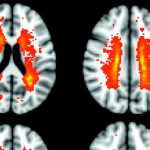
Paul Wilcox
Infection with parasitic worms has been shown to reduce the severity of an MS-like illness in mice and protect against MS in humans. In particular, the worms Nippostrongylus brasiliensis, which can live in the intestines of humans, has been shown to prevent relapses in some people with MS. However deliberately infecting people with worms has both ethical and health issues, so researchers have been investigating how worms are able to do this so that they may be able to mimic this effect without using live worms.
Aspiring young researcher, Paul Wilcox who received an MS Research Australia Vacation Scholarship in 2015 , working with Dr Suzanne Hodgkinson, and her colleagues at the University of New South Wales, have recently published a study investigating the immune response to this worm in a laboratory model of MS.
Published in the journal Frontiers in Immunology, Dr Hodgkinson’s team looked at the role of immune system chemical messengers, known as cytokines in the response to worm infection. In particular, they found that the cytokine IL-5, appears to play a key role.
The team showed that in the MS-like illness, Experimental Autoimmune Encephalomyelitis (EAE), infection with Nippostrongylus brasiliensis worms decreased the severity and delayed the onset of disease symptoms. When they removed the IL-5 cytokine from the mice, the worms no longer had this beneficial effect showing that IL-5 was crucial for the worms to exert their effect on the disease.
Through further experiments the team were able to show that the worms were working through IL-5 to affect specific cells in the immune system called T-regulatory, or Treg, cells. These cells are involved in ‘calming down’ the immune system and in particular preventing the immune system from attacking parts of its own body. When IL-5 was present, the worms were able to make the Treg cells become active, preventing other ‘pro-inflammatory’ immune cells from targeting and destroying the myelin coat that protects neurons.

Dr Sheila Donnelly
These experiments help us to understand how worms and other parasites are able to change the activity of the immune system to protect themselves from the host’s defences, but in the process also “help” our body to not attack itself. Further studies can now start to develop therapeutics that can mimic these molecules, reproducing their effects in a more controlled manner than would occur from direct administration of worms. Similar studies are currently being performed by another MS Research Australia supported researcher, Dr Shelia Donnelly at the University of Technology, Sydney.
These researchers are ultimately working towards developing new therapeutics that may help prevent relapses and slow down the progression of MS.
Dr Sheila Donnelly talks about this field of research in the recording at MS Research Australia’s Live Update, view here.






